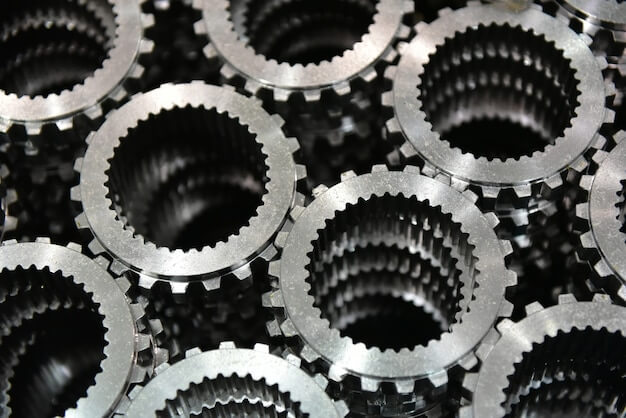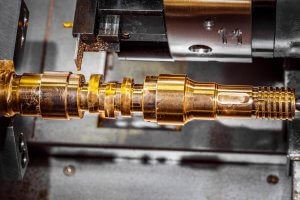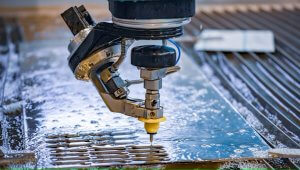Introduction to Tool Steel and Carbide in CNC Machining
In CNC machining, the selection of the right material is crucial for ensuring durability. Two common materials used are tool steel and carbide. Tool steel is a type of high-carbon alloy steel that offers exceptional toughness and heat resistance making it ideal for low production runs requiring good surface finish.
- Benefits of Tool Steel:
- Exceptional Heat Resistance
- Offers Good Surface Finish
- Drawbacks of Tool Steel:
- Not Ideal for High Production Runs
- Requires Regular Maintenance
On the other hand, carbide is an ultra-hard material that’s resistant to wear, high temperatures, and deformation thus suitable for high volume production.
- Benefits of Carbide:
- Highly Resistant to Wear and Heat
- Suitable for High Volume Production
- Drawbacks of Carbide:
- Pricier than Other Materials
- Fragile and Prone to Chipping
The choice between these two largely depends on the specific requirements of the machining process, the frequency of use, and overall budget constraints.
Understanding Tool Steel in CNC Machining
When delving into the understanding of tool steel in CNC machining, it’s important to consider:
- The composition and properties of tool steels
- The specific applications of tool steels in CNC machining for maximum durability
- The impact of tool steel selection on machining processes and tooling
Understanding Carbide
Carbide is a compound that features carbon and another element, often a metal. It is beloved for its hardness, resistance to wear and high melting point, making it particularly suitable for use with CNC Machining tools. One of the most essential types of carbides used in manufacturing these tools is tungsten carbide. The process of producing carbide tools entails combining tungsten and carbon at high temperatures – a method that results in an incredibly hard substance.
In terms of benefits within the realm of CNC machining, carbide offers a range of advantages:
- Excellent Hardness: This property allows CNC tools made from carbide to effectively cut through tough materials.
- Prolonged Tool Life: Due to high resistance against wear and tear, carbide tools tend to last longer than their counterparts.
- High Melting Point: This makes carbide tools ideal for operations involving high heat.
Despite these advantages, there are few challenges too:
- Making tools from carbide can be more expensive compared to traditional steel tools.
- Also, carbide being brittle, if it’s not handled properly or subjected to sudden forces, could shatter.
Yet, having excellent durability and heat-resistance properties, the investment in carbide tools often returns value in the long run as they offer better performance and have a longer lifespan.
Comparing Durability of Tool Steel and Carbide
The durability of material plays a crucial role in its application, taking this into consideration tool steel and carbide have been examined under different conditions. To begin with the hardness measure, carbide leads due to its ability to maintain cutting edges even at high temperatures. However, when considering toughness- a feature that accounts for the material’s capacity to absorb impact without breaking or cracking, tool steel comes out ahead owing to its inherent structural properties.
| Tool Steel | Carbide | |
|---|---|---|
| Hardness | Limited capability at elevated temperatures | Strong performance despite high heat |
| Toughness | Performs well absorbing impacts | Potential for chipping due to less robust nature |
| Heat Resistance | Lower tolerance to heat | High thermal stability sustaining long periods of use under high temperature |
As for specific examples where each type shows more durability based on factors such as heat resistance and impact absorption; carbide proves extremely durable in applications involving constant contact with abrasive materials at high temperatures, like milling hardened steels while the superior toughness of tool steels makes them ideal in situations that require heavy force applications, such as metal stamping or cold forging processes.
Impact of Material Choice on the Manufacturing Process
The choice of material holds significant influence over the quality and performance of your end product in CNC machining. For instance, precision cutting when using impression dies made out of carbide instead of tool steel can drastically change your outcome. Carbide offers superior hardness, enabling more accurate cuts without compromising speed or efficiency. Fewer changes, due to enhanced tool life expectancy, can save costs while optimizing productivity.
- Tool Life Expectancy: Owing to its resilience under high temperatures and pressure, Carbide tools tend to have a longer lifespan than those made from tool steel. This not only leads to cost savings by reducing the need for regular replacements but also enhances manufacturing efficiency with less downtime.
- Precision Cutting: The advanced hardness feature of carbide allows for high-precision cutting in complex geometries which significantly influences the overall quality of the end product.
- Cost and Productivity: Although carbide tools may initially appear as an expensive investment compared to tool steel, their robustness leading to long-term durability results in cost-effectiveness during prolonged usage. Consequently, this has direct implications on boosting production capacity.
In conclusion, selecting the appropriate machining materials like carbide could prove pivotal in gaining maximum durability thereby impacting positively on cost reduction and productivity enhancement in the CNC machining industry.
Conclusion
In conclusion, the core factors that have been intensely analyzed in this article revolve around the comparison of tool steel and carbide for optimal CNC machining durability. From strength, hardness, toughness, to heat resistance capabilities, both materials exhibit unique properties that affect not just machine performance but also longevity. It is imperative therefore to understand how tool steel stacks up against carbide in these aspects.
The in-depth analysis provided has illuminated how different compositions could alter a machine’s lifespan significantly and strengthen its overall stability. This knowledge is crucial as it directly influences your choice when it comes to selecting the most suitable material for your specific CNC machining needs.
- Gaining an understanding of their respective advantages helps optimize operational efficiency by reducing unnecessary breakdowns and frequent maintenance requirements, thereby resulting in cost-effectiveness over time.
- Bear in mind that maximizing durability doesn’t necessarily mean opting for the hardest material available. Rather, it’s about finding the right balance based on use-case scenarios while considering additional parameters such as rigidity, wear-resistance, brittle fracture susceptibilities, etc.
Related Posts
- Tool Steel Grades for CNC Machining: A Comprehensive Comparison
Introduction to Tool Steel in CNC Machining CNC (Computer Numerical Control) machining denotes a process employed in manufacturing where pre-programmed computer software manages the movement of factory machinery and tools.…
- Durable Materials for CNC Machining: Tool Steel Grades Compared
Introduction to CNC Machining and its Importance in Manufacturing CNC (Computer Numeric Control) machining, a cornerstone of modern manufacturing, plays a pivotal role due to its precision, efficiency, and versatility.…
- Tool Steel Grades in CNC Machining: A Comparison of D2 vs. A2 for Durability and Precision
Understanding Tool Steel Grades: The Importance of Selection for CNC Machining In the realm of Computer Numerical Control (CNC) machining, tool steel grades play a crucial role in determining the…








